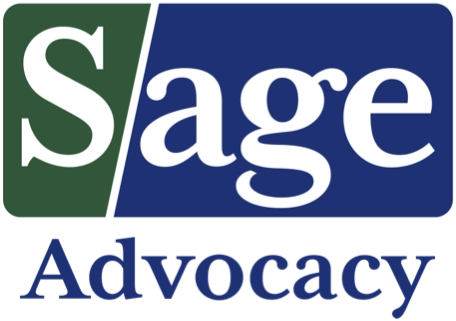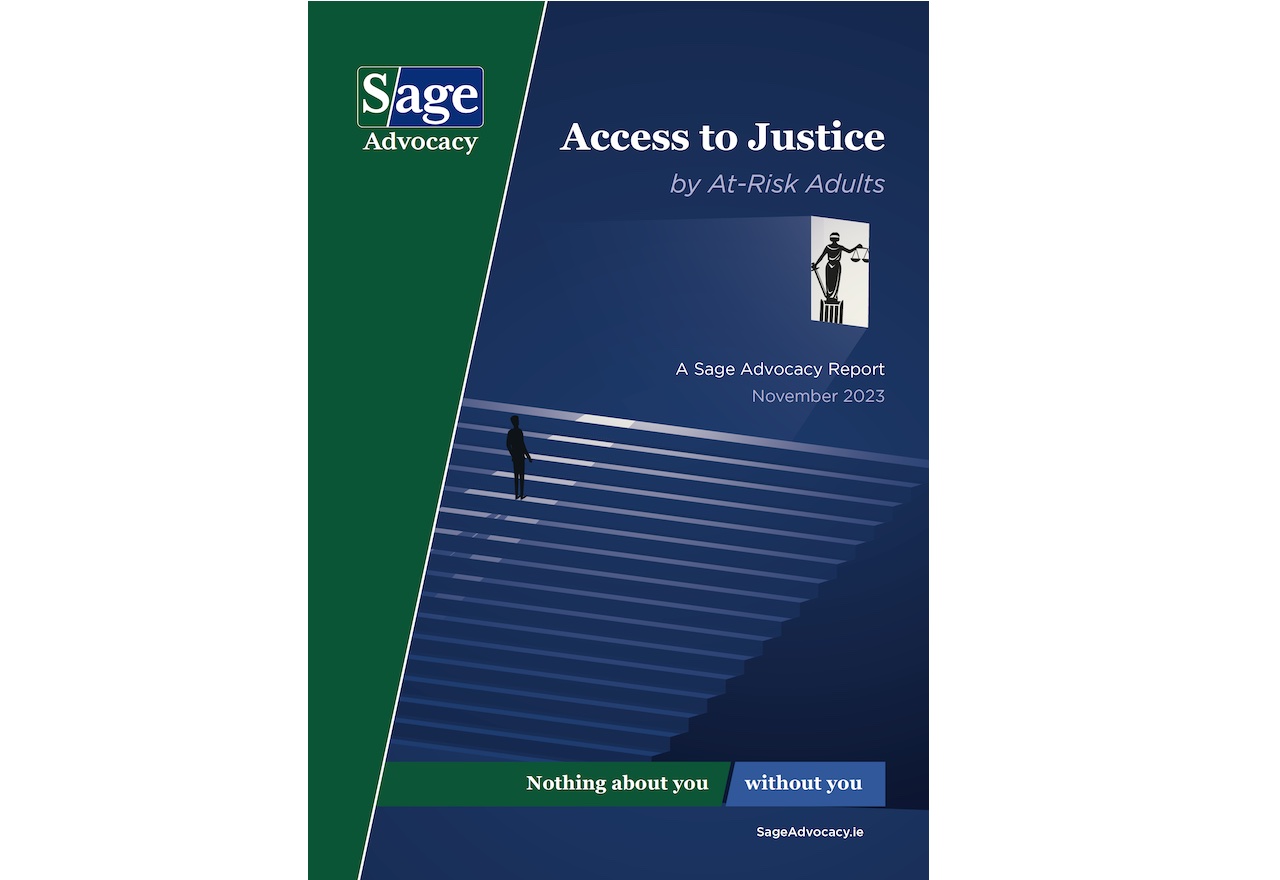A new report commissioned by Sage Advocacy has highlighted shortcomings in access to justice for at-risk adults, and the steps that need to be taken to address the issue.
The report Access to Justice by At-Risk Adults finds that access to justice is uneven, and that many barriers need to be addressed for at-risk adults.
The report looks at the information, systems, settings and procedures that need to be navigated in the justice process – and at how justice can be denied when at-risk adults’ rights are restricted in relation to access to health and social care, or are flouted by those who would abuse and exploit them in ways not guarded against by legislation. (For example, under the Domestic Violence Act 2018 only a current or former intimate partner / spouse may be convicted of Coercive Control.)
The report has been commended by Justice John McMenamin of the Supreme Court’s Access to Justice Committee as “important and thought-provoking” and “constitutes a further step in the long road to vindicating rights for at-risk adults”.
The report (here), written by Dr Michael Browne with the assistance of Geróid Mac Eochaidh, is being launched today by Safeguarding Ireland Chairperson, Patricia Rickard-Clarke, at an event attended by members of the judiciary, An Garda Síochána and the Law Reform Commission.
Ms. Rickard-Clarke said: “Access to Justice by At-Risk Adults is considerable piece of work. It gives great clarity on areas where the State falls short in facilitating full access to justice for citizens who face vulnerabilities arising from their needs for care and support. Its findings set out a persuasive case for many improvements and legislative interventions that I hope can be heeded and taken up with urgency at the highest level.”
The report’s lead author Dr Michael Browne said: “Our findings show that access to justice remains uneven – despite the fact that there has been good progress in recent years. I hope that the report will be read in a spirit of action.”
The report identifies a wide range of issues relating at-risk adults achieving justice in Ireland within the civil and criminal law systems; and the barriers that can arise for both victims and perpetrators of crime who experience risk factors such as dependency, disability and health status.
It provides a measure of the extent to which the State is meeting its responsibility to promote and protect equal access to justice as a fundamental human right – looking at discriminatory culture and attitudes; shortcomings in the Civil Legal Aid Scheme; lack of representation of people with disabilities in legal professions; inaccessible legal information and physical settings; gaps in legislative protections for people in long-term care (e.g., in situations of deprivation of liberty); and over-representation of at-risk adults in the prison system.
The report identifies the concept of legal capacity (the capacity to have rights and the power to exercise those rights) as being at the very core of access to justice – and asserts, conversely, that any failure to recognise the agency and legal capacity of adults with reduced decision-making capacity is fundamentally a denial of their access to justice.
It therefore provides a timely survey of the implementation to date of the watershed Assisted Decision Making Acts and examines what needs to be done to ensure that the law is understood and acted on, to the fullest extent.
Justice McMenamin added that the report “places the focus squarely on the process for ensuring that the voices of persons at risk are truly heard and heeded”.
Observing that this can take time, he said: “It can on occasion require independent advocates who have the time and opportunity to truly listen to those voices, removed from other background ‘noise’.
“Once a person’s true needs and wishes are identified, then the process of giving expression to those needs in a concrete way can begin. Real access to justice in this vital area may be painstaking but it is fundamental.”
Access to Justice by At-Risk Adults can be viewed / downloaded at www.sageadvocacy.ie.
Further information
Ronan Cavanagh, Cavanagh Communications: 086 3179731
ronan@cavanaghcommunications.ie



